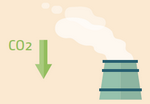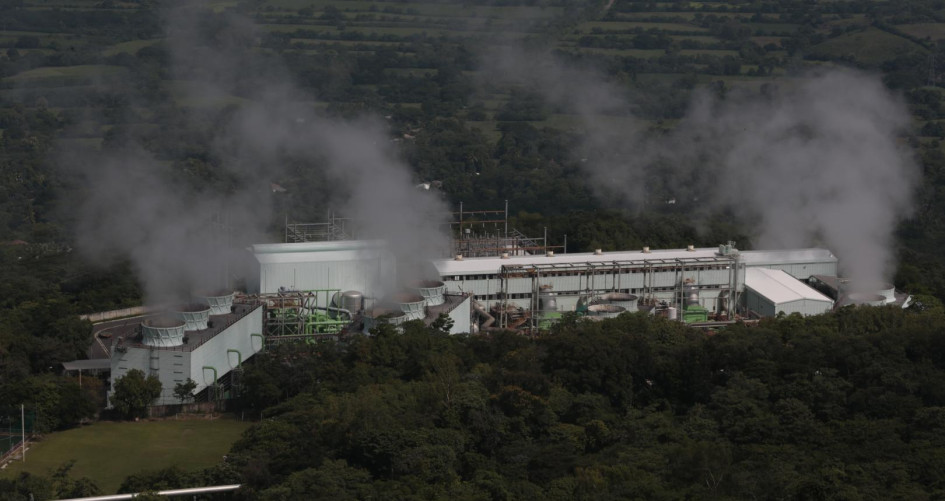Women from rural communities in El Salvador are increasing their incomes and tackling climate change through a unique project that uses waste heat and steam condensates from nearby geothermal plants. Women living in communities near the geothermal plants use waste heat from the geothermal steam to dehydrate fruit for themselves and for commercial sale. They also grow and sell plants watered with geothermal condensates. Four women are permanently employed as rangers in a wildlife protection park, which has been established in the geothermal field. Through this project, women are able to run a productive business while earning a sustainable income.
Key facts:
- Dozens of women from 15 rural communities surrounding the geothermal field have participated in the initiative so far;
- 45,570 people are benefitting indirectly from the initiative;
- 1.8 tonnes of CO2 are avoided per year due to the use of geothermal waste heat instead of traditional fossil fuels,
The problem
Traditional agricultural practices have low production rates in rural areas of El Salvador. As a result, female farmers’ incomes are very low. Employment opportunities in the communities next to the geothermal fields are scarce.
In addition, the traditional agricultural practices in El Salvador’s rural areas are carbon intensive. Wood and other fossil fuels are typically burnt to dehydrate fruit and pump water, which releases greenhouse gas emissions and causes climate change. Deforestation is also an issue in the region as wood is cut down for fuel.
The solution
LaGeo is an electricity generation company with two geothermal fields and power plants: Berlin and Ahuachapán, which produce 27% of El Salvador’s electricity using renewable geothermal energy. LaGeo created an action plan to empower women living next to the geothermal fields.
Women from rural communities of the Berlin Municipality are involved in various projects using geothermal energy and its derivatives. Waste-heat from geothermal energy plants are used for projects such as growing and selling plants watered with geothermal condensates and dehydrating fruits with geothermal steam.

Helping the planet
Using waste-heat from the geothermal plants to dehydrate fruit displaces fossil fuels and reduces greenhouse gas emissions. Approximately 1.8 tonnes of CO2 are avoided per year due to fuel displacement.

The initiative is also reducing deforestation due to the establishment of a wildlife protection park and several reforestation projects in the geothermal field. Four women are employed as rangers in the park. They are in charge of conservation activities, caring for rescued animals and guiding visitors. The protected forest has an area of 111,824 m2. Water services for the wildlife protection park are provided by surplus steam condensates.
Helping people
The initiative is increasing women’s incomes through activities that reduce greenhouse gas emissions. As a direct result of the project, women have the skills, abilities and confidence to assume leadership roles in their communities.
For example, women are running a fruit dehydration business using geothermal steam. The dehydrator has a capacity for 25 kg of fruit and the women produce 15 kg of dehydrated fruit per batch. They invest approximately USD 50 and have a profit of USD 75 for each batch. The amount produced depends on the demand. On average, they produce one batch per month. Although the amount of sales is small, it is making a big difference because the minimum wage for agricultural activities in El Salvador is USD 3.94 per day.
Another example is the planting of organic cacao and coffee trees, which will eventually be commercialized to achieve sustainable reforestation programs in the long term. Approximately 15 women from the communities are hired six months per year to plant the trees. They earn USD 5.19 per day.
Four women from the surrounding communities have been permanently hired by LaGeo as park rangers in a wildlife protection park within the grounds of the geothermal field. They earn USD 400 per month, a salary significantly above minimum wage.
The women were trained in environmental conservation, animal health care, forest protection, and English language skills. The women are in charge of forestry activities, feeding wild animals, maintaining the park, assisting during veterinary operations, environmental projects and the visitors’ center.

Spillover effect
The Harvesting Geothermal Energy initiative has the potential to be replicated in LaGeo’s new geothermal projects in El Salvador and in other Latin American countries with similar socioeconomic conditions.
LaGeo expects to enter into an agreement with the Ministry of Environment and Natural Resources to ensure the long-term sustainability of the initiative.
The women participating in LaGeo’s reforestation activities will be enhanced through a Grupo CEL project, whose goal is to plan 3 million trees in 3 years to reforest the Lempa and Torala watersheds.




Images owned by the activity partners, all rights reserved

